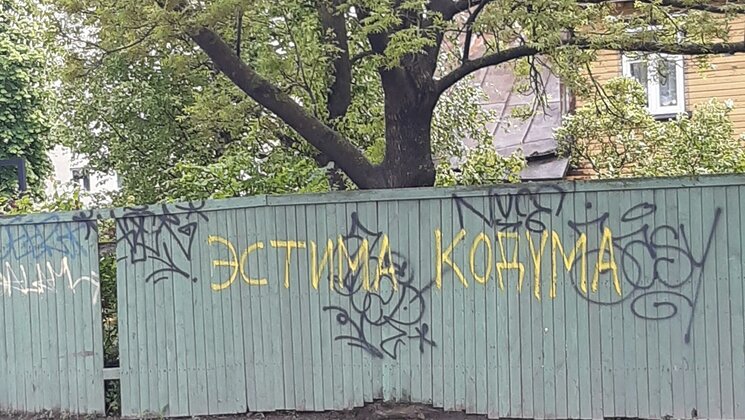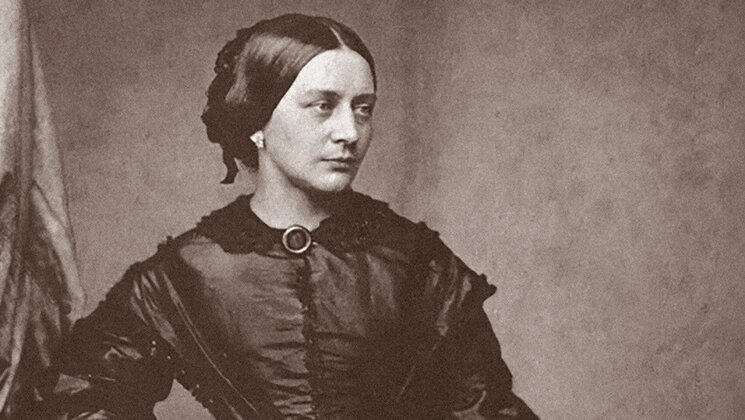-
Faculty of Arts and HumanitiesDean's Office, Faculty of Arts and HumanitiesJakobi 2, r 116-121 51005 Tartu linn, Tartu linn, Tartumaa EST0Institute of History and ArchaeologyJakobi 2 51005 Tartu linn, Tartu linn, Tartumaa EST0Institute of Estonian and General LinguisticsJakobi 2, IV korrus 51005 Tartu linn, Tartu linn, Tartumaa EST0Institute of Philosophy and SemioticsJakobi 2, III korrus, ruumid 302-337 51005 Tartu linn, Tartu linn, Tartumaa EST0Institute of Cultural ResearchÜlikooli 16 51003 Tartu linn, Tartu linn, Tartumaa EST0Institute of Foreign Languages and CulturesLossi 3 51003 Tartu linn, Tartu linn, Tartumaa EST0School of Theology and Religious StudiesÜlikooli 18 50090 Tartu linn, Tartu linn, Tartumaa EST0Viljandi Culture AcademyPosti 1 71004 Viljandi linn, Viljandimaa EST0Professors emeriti, Faculty of Arts and Humanities0Associate Professors emeriti, Faculty of Arts and Humanities0Faculty of Social SciencesDean's Office, Faculty of Social SciencesLossi 36 51003 Tartu linn, Tartu linn, Tartumaa EST0Institute of EducationJakobi 5 51005 Tartu linn, Tartu linn, Tartumaa EST0Johan Skytte Institute of Political StudiesLossi 36, ruum 301 51003 Tartu linn, Tartu linn, Tartumaa EST0School of Economics and Business AdministrationNarva mnt 18 51009 Tartu linn, Tartu linn, Tartumaa EST0Institute of PsychologyNäituse 2 50409 Tartu linn, Tartu linn, Tartumaa EST0School of LawNäituse 20 - 324 50409 Tartu linn, Tartu linn, Tartumaa EST0Institute of Social StudiesLossi 36 51003 Tartu linn, Tartu linn, Tartumaa EST0Narva CollegeRaekoja plats 2 20307 Narva linn, Ida-Virumaa EST0Pärnu CollegeRingi 35 80012 Pärnu linn, Pärnu linn, Pärnumaa EST0Professors emeriti, Faculty of Social Sciences0Associate Professors emeriti, Faculty of Social Sciences0Faculty of MedicineDean's Office, Faculty of MedicineRavila 19 50411 Tartu linn, Tartu linn, Tartumaa ESTInstitute of Biomedicine and Translational MedicineBiomeedikum, Ravila 19 50411 Tartu linn, Tartu linn, Tartumaa ESTInstitute of PharmacyNooruse 1 50411 Tartu linn, Tartu linn, Tartumaa ESTInstitute of DentistryL. Puusepa 1a 50406 Tartu linn, Tartu linn, Tartumaa ESTInstitute of Clinical MedicineL. Puusepa 8 50406 Tartu linn, Tartu linn, Tartumaa ESTInstitute of Family Medicine and Public HealthRavila 19 50411 Tartu linn, Tartu linn, Tartumaa ESTInstitute of Sport Sciences and PhysiotherapyUjula 4 51008 Tartu linn, Tartu linn, Tartumaa ESTProfessors emeriti, Faculty of Medicine0Associate Professors emeriti, Faculty of Medicine0Faculty of Science and TechnologyDean's Office, Faculty of Science and TechnologyVanemuise 46 - 208 51003 Tartu linn, Tartu linn, Tartumaa ESTInstitute of Computer ScienceNarva mnt 18 51009 Tartu linn, Tartu linn, Tartumaa ESTInstitute of GenomicsRiia 23b/2 51010 Tartu linn, Tartu linn, Tartumaa ESTEstonian Marine Institute0Institute of PhysicsInstitute of ChemistryRavila 14a 50411 Tartu linn, Tartu linn, Tartumaa EST0Institute of Mathematics and StatisticsNarva mnt 18 51009 Tartu linn, Tartu linn, Tartumaa EST0Institute of Molecular and Cell BiologyRiia 23, 23b - 134 51010 Tartu linn, Tartu linn, Tartumaa ESTTartu ObservatoryObservatooriumi 1 61602 Tõravere alevik, Nõo vald, Tartumaa EST0Institute of TechnologyNooruse 1 50411 Tartu linn, Tartu linn, Tartumaa ESTInstitute of Ecology and Earth SciencesJ. Liivi tn 2 50409 Tartu linn, Tartu linn, Tartumaa ESTProfessors emeriti, Faculty of Science and Technology0Associate Professors emeriti, Faculty of Science and Technology0Institute of BioengineeringArea of Academic SecretaryHuman Resources OfficeUppsala 6, Lossi 36 51003 Tartu linn, Tartu linn, Tartumaa EST0Area of Head of FinanceFinance Office0Area of Director of AdministrationInformation Technology Office0Administrative OfficeÜlikooli 18A (III korrus) 51005 Tartu linn, Tartu linn, Tartumaa EST0Estates Office0Marketing and Communication OfficeÜlikooli 18, ruumid 102, 104, 209, 210 50090 Tartu linn, Tartu linn, Tartumaa EST0Area of Vice Rector for DevelopmentCentre for Entrepreneurship and InnovationNarva mnt 18 51009 Tartu linn, Tartu linn, Tartumaa EST0University of Tartu Natural History Museum and Botanical GardenVanemuise 46 51003 Tartu linn, Tartu linn, Tartumaa EST0International Cooperation and Protocol Office0University of Tartu MuseumLossi 25 51003 Tartu linn, Tartu linn, Tartumaa EST0Area of RectorRector's Strategy OfficeInternal Audit OfficeArea of Vice Rector for Academic AffairsOffice of Academic Affairs0University of Tartu Youth AcademyUppsala 10 51003 Tartu linn, Tartu linn, Tartumaa EST0Student Union OfficeÜlikooli 18b 51005 Tartu linn, Tartu linn, Tartumaa EST0Centre for Learning and TeachingArea of Vice Rector for ResearchUniversity of Tartu LibraryW. Struve 1 50091 Tartu linn, Tartu linn, Tartumaa EST0
Winter school „Semiotics of Political and Strategic Communication“ programme

TIME
29th January to 2nd February 2024
PLACE
Narva and Tartu in Estonia, at the UT Narva College and the University of Tartu.
Organisers: Department of Semiotics (prof. Andreas Ventsel) and Johan Skytte Institute of Political Studies (prof Andrey Makarychev), Tartu University
Day 1 (29.01): Historical Narratives and Collective Memories (Eneken Laanes, Tallinn University)
I session - Opening words + introducing the program, assessment etc,.
II session - Lecture + Seminar: Historical Narratives, Heritage and Political Polarization
III session - Lecture + Seminar: Securitization of Memory; antagonistic vs agonistic memory cultures
IV session - Group Work: Dissecting Vladimir Putin’s use of historical arguments in key speeches and essays
Day 2 (30.01): Semiotics Aspects of Strategic Narratives: Fake News, Conspiracy Theories, Manipulative Techniques of Misinformation (Andreas Ventsel, Tartu University)
I session – Lecture: Introduction of main concepts (strategic communication, semiotic approach, counter strategies, affective storytelling etc)
II session – Seminar: Seminar texts on strategic/political communication, affective storytelling and history narratives
III session – Group work: Constructing strategic narrative. Work groups, each consisting of 5 members, are established. These groups are tasked with crafting a strategic narrative or message. By the end of the third session, they present their narratives/messages, highlighting their primary objectives and underlying structural principles.
IV session - Group work: Strategic counter narrative. Students engage with the strategic messages developed in the prior session, with the aim of formulating a response or devising an debunking strategy for the initial message. The session wraps up with presentations followed by a discussion.
Day 3 (31.01): Visual Biopolitics of Crises and Conflicts: Semiotic Inquiries (Andrey Makarychev, Tartu University)
I Session - Lecture: Visual Biopolitics for International Relations and Political Studies: Methodologies and Conceptualizations
II Session - Visual Biopolitics of the COVID-19 Pandemic (presentation of main points, followed by a group discussion)
III Session: Visual Biopolitics of Bordering and De-bordering: Estonian and Finnish Storylines (presentation and a practical exercise)
IV Session – Group work: From Bio- to Necropolitics: Visualizing Russia’s Invasion in Ukraine
Day 4 (01.02): Ukraine in the Limelight: What and How Can We Learn? (Yuliia Kurnyshova, Copenhagen University)
I Session - Lecture +Discussion: Emotions during the War: Interplay between Emotions, Pragmatism and Security Governance
- Conceptual Approaches
- How emotions can be manipulated to influence public opinion and decision-making
- Case-studies of Ukraine and Russia
II Session - Lecture + Discussion: Ethical Tropes in War Discources
- Ukraine’s Ethical Reasoning and Normative Agency
- Civilizational Security (Ukraine, Russia, Euro-Atlantic West)
III Session: Semiotics of Space: Ukraine’s Break with the Easten Europe
- Role of language, imageries, and cultural references in shaping postcolonial narratives
IV Session: Students’ Presentations of the work in groups, Conclusions
- Intersections and Interactions of all elements
Day 5 (02.02): “The Arts of Survival”: Estonian Cultural Narratives in Insecure Times (Kristina Norman)
I Session - After-War (2009). Addressing the white spots in history and finding multiple ways of looking at the so-called Bronze Soldier monument in Tallinn. After-War as a project of recycling of a historical symbol and of thinking about the ethics of representation of minority cultures and subject positions in the media and the arts.
II Session - Souvenir and Iron Arch (2014), a project of turning the Palace Square of St Petersburg into Kyiv’s Maidan. Reviving the memory of political protests in the main squares of Russia’s towns and cities.
III Session - Orchidelirium Expanded 2.0 (2023). Dealing with colonial heritage in post-Soviet Estonia, investigating forgotten connections between Eastern Europe and the global south through performing art and experimental film.
The event is supported by Estonian Research Council and CELSA consortium.
Read more similar news






